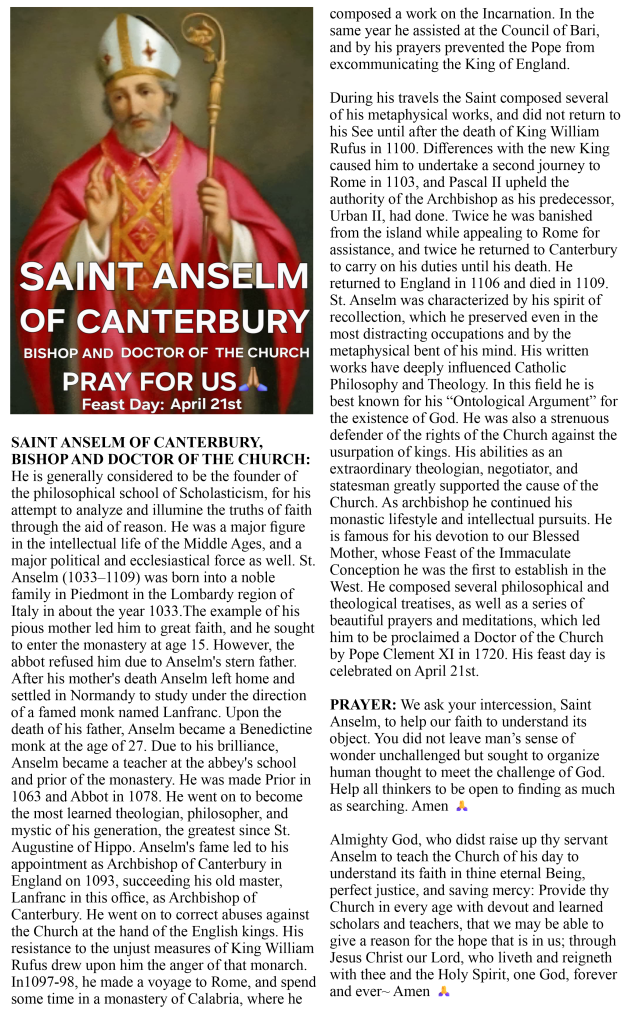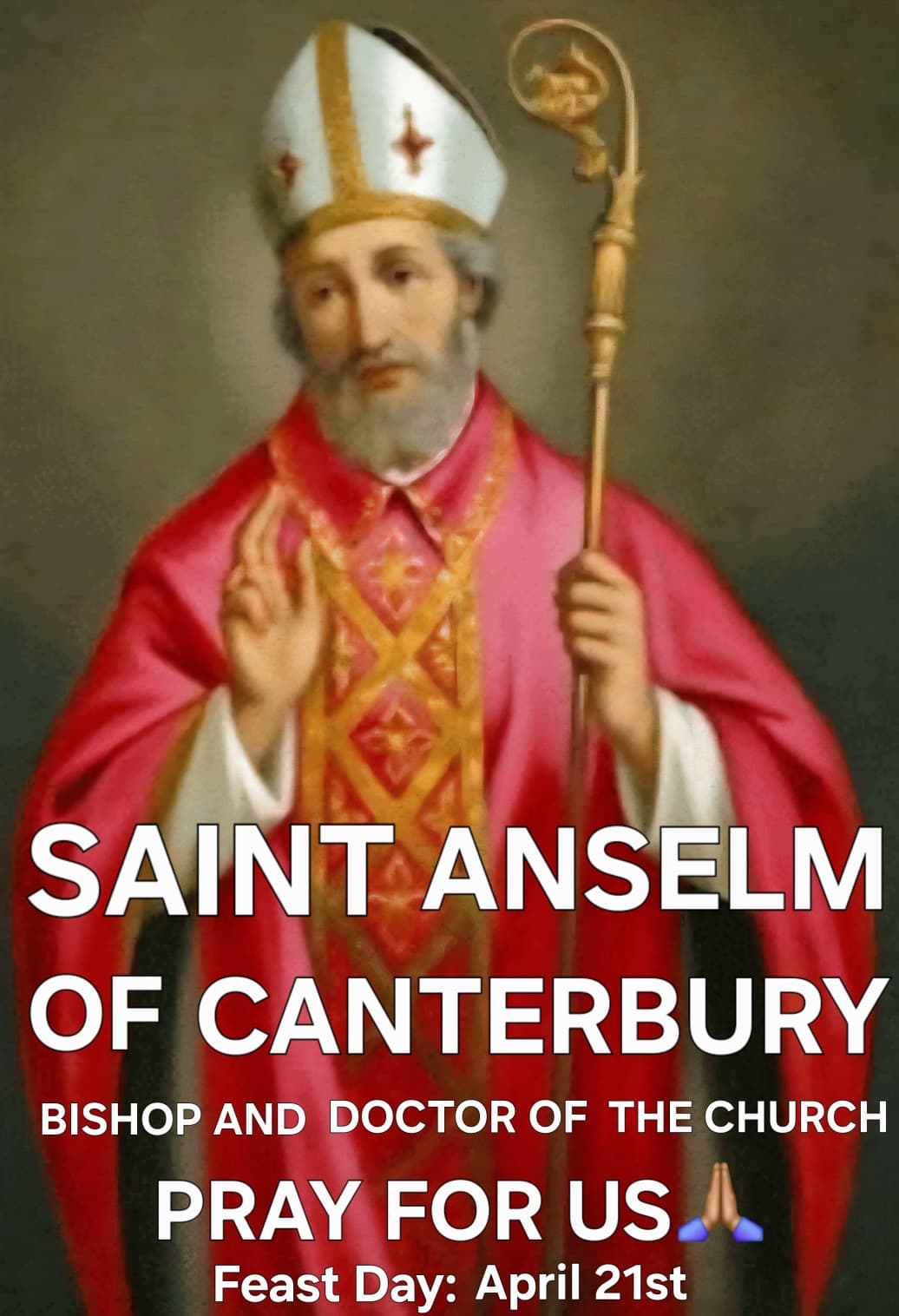
SAINT ANSELM OF CANTERBURY, BISHOP AND DOCTOR OF THE CHURCH: He is generally considered to be the founder of the philosophical school of Scholasticism, for his attempt to analyze and illumine the truths of faith through the aid of reason. He was a major figure in the intellectual life of the Middle Ages, and a major political and ecclesiastical force as well. St. Anselm (1033–1109) was born into a noble family in Piedmont in the Lombardy region of Italy in about the year 1033.The example of his pious mother led him to great faith, and he sought to enter the monastery at age 15. However, the abbot refused him due to Anselm’s stern father. After his mother’s death Anselm left home and settled in Normandy to study under the direction of a famed monk named Lanfranc. Upon the death of his father, Anselm became a Benedictine monk at the age of 27. Due to his brilliance, Anselm became a teacher at the abbey’s school and prior of the monastery. He was made Prior in 1063 and Abbot in 1078. He went on to become the most learned theologian, philosopher, and mystic of his generation, the greatest since St. Augustine of Hippo. Anselm’s fame led to his appointment as Archbishop of Canterbury in England on 1093, succeeding his old master, Lanfranc in thisoffice, as Archbishop of Canterbury. He went on to correct abuses against the Church at the hand of the English kings. His resistance to the unjust measures of King William Rufus drew upon him the anger of that monarch. In1097-98, he made a voyage to Rome, and spend some time in a monastery of Calabria, where he composed a work on the Incarnation. In the same year he assisted at the Council of Bari, and by his prayers prevented the Pope from excommunicating the King of England.
During his travels the Saint composed several of his metaphysical works, and did not return to his See until after the death of King William Rufus in 1100. Differences with the new King caused him to undertake a second journey to Rome in 1103, and Pascal II upheld the authority of the Archbishop as his predecessor, Urban II, had done. Twice he was banished from the island while appealing to Rome for assistance, and twice he returned to Canterbury to carry on his duties until his death. He returned to England in 1106 and died in 1109. St. Anselm was characterized by his spirit of recollection, which he preserved even in the most distracting occupations and by the metaphysical bent of his mind. His written works have deeply influenced Catholic Philosophy and Theology. In this field he is best known for his “Ontological Argument” for the existence of God. He was also a strenuous defender of the rights of the Church against the usurpation of kings. His abilities as an extraordinary theologian, negotiator, and statesman greatly supported the cause of the Church. As archbishop he continued his monastic lifestyle and intellectual pursuits. He is famous for his devotion to our Blessed Mother, whose Feast of the Immaculate Conception he was the first to establish in the West. He composed several philosophical and theological treatises, as well as a series of beautiful prayers and meditations, which led him to be proclaimed a Doctor of the Church by Pope Clement XI in 1720. His feast day is celebrated on April 21st.
PRAYER: We ask your intercession, Saint Anselm, to help our faith to understand its object. You did not leave man’s sense of wonder unchallenged but sought to organize human thought to meet the challenge of God. Help all thinkers to be open to finding as much as searching. Amen🙏
Almighty God, who didst raise up thy servant Anselm to teach the Church of his day to understand its faith in thine eternal Being, perfect justice, and saving mercy: Provide thy Church in every age with devout and learned scholars and teachers, that we may be able to give a reason for the hope that is in us; through Jesus Christ our Lord, who liveth and reigneth with thee and the Holy Spirit, one God, forever and ever~Amen🙏
SAINT ANSELM OF CANTERBURY | https://dailyreflectionswithphilomena.com/saint-anselm-of-canterbury/
